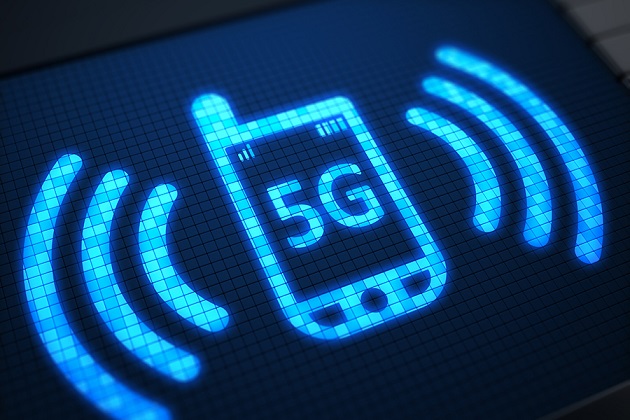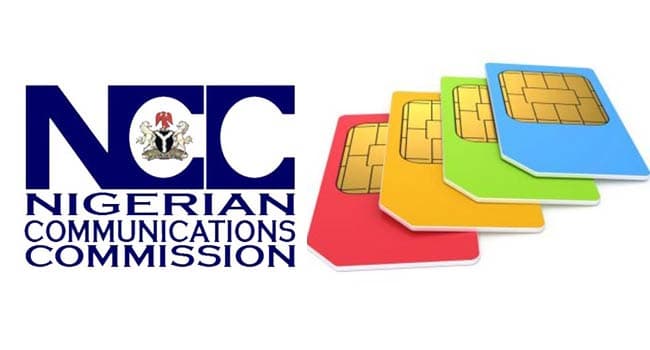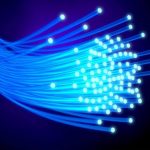Like the current Olympics Games taking place in Tokyo, many countries are in the race to deploy 5G technologies.
Likewise, as runners from different countries participate in Olympics with varying speeds, Nigeria has inched closer to 5G’s nationwide deployment.
In what can be described as the 5G Olympics, Nigeria has reached the finish line of preparations for nationwide rollout.
The country has picked up pace to join South Africa and Kenya as pioneer African countries to deploy 5G technologies.
The Nigerian Communications Commission, NCC, said it has concluded all necessary arrangements for the rollout.
The Executive Vice Chairman of NCC, Prof Umar Danbatta disclosed this to newsmen in a statement.
He said “the Commission has commenced the process for deployment of Fifth Generation (5G) Technology in Nigeria.”
Although global race for deployment is still in early stages, Nigeria also finalized with telecommunication companies on instruments for 5G rollout.
Recall that NCC had earlier signed a memorandum of understanding with communications satellite firm, NigcomSat, to allow 5G services to ride on its C-band frequency spectrum (this spectrum accounts for 60-70% of the commercial deployment of 5G networks globally).
What Is 5G Technology:
5G is a fifth generation of mobile technology which is an improvement on today’s 4G technology with enhanced capabilities.
It is a natural progression from previous technology generations like 4G, 3G, 2G.
The technology provides the platform for new and emerging technologies such as Internet of Things (IoT), Artificial Intelligence (AI) and Big Data to improve the way we live and work.
Enablers of 5G Network:
Fifth Generation network is powered by two major enablers.
These enablers are the Network Functions Virtualization (NFV) and the Software-Defined Networking (SDN).
While SDN works on data and control and routing of 5G network, the NFV works on network functioning and flexibility.
American author, William Stallings, describes them as thus:
“SDN decouples (breaks up) data and control planes of network traffic control, making the control and routing of network traffic more flexible and efficient.”
“NFV decouples network functions from specific hardware platforms via virtualization to make the provisioning of these functions more efficient and flexible.”
So, both the SDN and the NFVs provide network operators the flexibility to deliver quality services in terms of connectivity.
Why Countries are in the ‘Olympics’ for 5G rollout:
Major countries of the world that have deployed 5G technology since 2019 include: South Korea, China, USA, Germany, among others.
In Africa, Nigeria, Kenya and South Africa are pioneer countries taking the lead.
South Africa launched the technology first, followed by Kenya in 2020.
However, about 18 African countries, including Gabon and Egypt and Lesotho have started testing 5G technology.
The countries are launching 5G technologies to improve and optimize work and life in ways networks like 4G and 3G can’t.
ALSO READ: NCPS 2021: COVID-19, 5G Technology Have Widened The Scope Of Cyber Threats – FG
5G will serve as a major upgrade to the Internet Technology (IT) infrastructure of countries that will deploy it.
Countries will advance work processes beyond the capabilities of 4G which is the current network generally in use.
For instance, just as 4G increased speeds by tenfold when it was introduced in the late 2000s, fifth-generation will eclipse 4G capabilities in terms of speed, latency and connectivity.
5G technology has the potential to enhanced connectivity, advance “smart transportation, medicine, manufacturing, the internet of things, and many more.”
According to GSMA, “5G will be a key enabler of the Fourth Industrial Revolution or Industry 4.0 – a time when technology is seamlessly embedded within society and especially in commercial and industrial processes.”
In a research, GSMA said, “In Sub-Saharan Africa, 5G can enable new and existing technologies, such as artificial intelligence (AI) and the Internet of Things (IoT), to have a transformative impact on business processes, helping drive productivity and efficiency.”
Explaining the benefits of 5G, NCC said, “5G technology will transform the world by connecting everything with everybody.”
It added saying, “It will create millions of jobs, it will add billions of dollars to the economy (GDP), and can solve some of our problems such as insecurity and improve governance and efficiency in the society.”
Instruments for 5G Network:
Governments and regulators are considering market structures to drive 5G mobile ecosystem.
The focus is on key areas such as network deployment, network flexibility, spectrum access and regulatory costs.
Consequently, the NCC has said it has drafted policies necessary for the deployment of 5G in Nigeria.
“It is indeed noteworthy that the NCC has been consistent and profound in instituting regulatory measures that will promote 5G deployment.”
Danbatta said the commission has reached agreement with the Telcos on two key instruments for 5G deployment.
The instruments are the Annual Operating Levy Regulations and the Frequency Spectrum (fees and pricing) Regulations.
Major telecoms companies in the agreement include: Airtel Nigeria, MTN Nigeria, Glo Mobile Network, 9Mobile, and other stakeholders were present.
Danbatta said NCC “is driving the provision of such ubiquitous services on making Frequeney Spectrum available to its licensees.”
He said NCC “issued a Spectrum Trading Guidelines in 2018” to ensure the efficacy of the rollout.
“The efficacy and reliability of these initiatives will be hinged on proper market valuation of the frequency spectrum and fair assessment of levies.”
Also, NCC’s Director, Public Affairs, Dr Ikechukwu Adinde, said, “The second instrument on frequency spectrum fee and pricing enables the Commission to meet its sole and exclusive mandate as enshrined in Section 21 of the Nigerian Communications Act (NCA), 2003 by assigning the scarce national resource in an equitable manner.
“The Regulations also guarantee that frequency spectrum are assigned and managed in a way that ensures fair pricing and efficient deployment of attendant services.”
Implication for you:
The implication of this is that with 5G network, you will work faster and better.
The speed and efficiency will be in using technology to do things.
For instance, 5G network will load your video games faster and with enhanced graphics.
Media organisations will have better network to function as websites will load faster.
It will bring energy efficient, yet highly effective devices for use.
5G will make payment platforms like ATM, PoS, etc smarter and faster.
It will add speed of up to 1 Gbps and 4 milliseconds latency to processes.
Also, you will not have to stand long queues to withdraw or deposit money with financial institutions.
In terms of healthcare, diagnostic machines will work better and faster.
You will have a high-speed, reliable and secure broadband experience with 5G technology.
Also, transportation sector will improve, with smart and faster train services as well as air and see transports.
Many benefits abound but lets stop here.



















 and then
and then